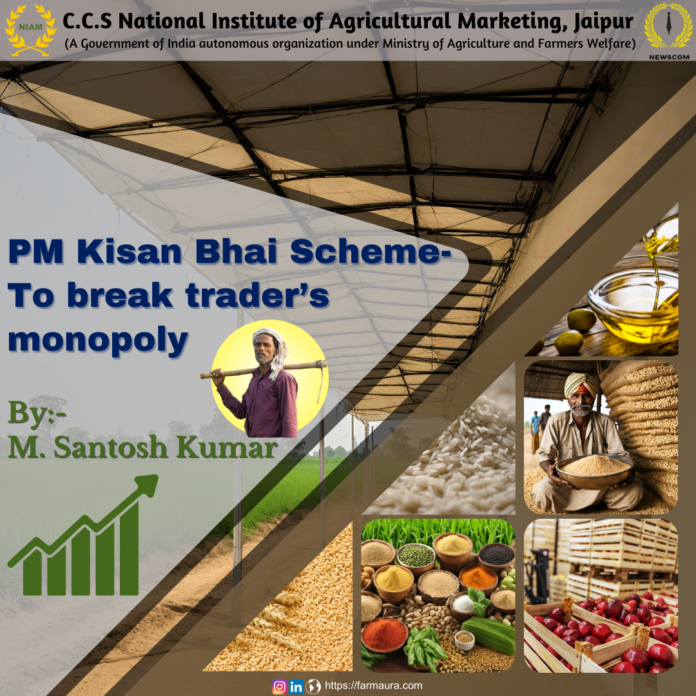The Indian government’s Ministry of Agriculture is preparing to introduce the ‘PM Kisan Bhai’ scheme. It aims to support farmers by reducing the dominance of traders in setting crop prices, empowering farmers in the process and getting ready to start a new plan that will help small farmers who struggle to store their crops until the best time to sell them in the market.
PM Kisan Bhai set to transform Agriculture trade
The PM Kisan Bhai scheme wants to help farmers have more control over how much they get paid for their crops. This means that traders won’t have all the power to decide the prices anymore. The feedback deadline has passed, and the plan is likely to start by December’s end. This might change how farming goods are traded in the country. The main goal of the PMKisan Bhai scheme is to change the old way where farmers had to sell their crops quickly after harvest, usually within 2-3 months. Plan wants to let farmers choose when they sell their crops, so they can keep them for at least three months after harvesting. This change is expected to shake up the control traders have over crop prices, giving farmers more power over what they grow.
Experimenting the Initiative
- The plan will first be tested in seven states: Andhra Pradesh, Assam, Madhya Pradesh, Maharashtra, Rajasthan, Tamil Nadu, and Uttar Pradesh.
- over three years, around ₹170 crore will be spent, including this year, to see if the PM Kisan Bhai plan works well in different types of farming areas.
Components of the Scheme
- The PM Kisan Bhai scheme comprises two major components – Warehousing Rental Subsidy (WRS) and Prompt Repayment Incentive (PRI).
- Small farmers and FPOs will be eligible for WRS benefit at ₹4 for every quintal of their crops they store each month, no matter how much they pay for storage. But the maximum time they can get this extra payment for storing their crops is three months.
- If farmers store their crops for less than 15 days, they won’t get the subsidy. The extra money they receive for storing their crops will be calculated based on the number of days they keep it stored.
Overcoming the Limitations
The document talks about the problem’s farmers have, like high expenses when they keep their crops and the risks of borrowing money using their crops as collateral. To solve these problems, the government wants to encourage farmers to store their crops in well-designed warehouses by providing incentives. The government is suggesting lowering the interest rate for loans that farmers take using eNegotiable warehouses receipts (eNWRs) showing they have stored crops in warehouses as security. It aims to accomplish this by introducing a Prompt Repayment Incentive (PRI) on trading such eNWR via the eNational Agriculture Market (eNAM) platform or other registered e-trading platforms interoperable with eNAM.
Challenges and Prospects
Experts believe the scheme can help farmers, but they worry that buyers might still have too much control over prices, which could be a problem. A person who studies markets says that the PMKisan Bhai scheme’s success depends on how buyers react as it affects a lot to agriculture value chain. Buyers have a lot of power in the farming business because they have a lot of money to invest. As the scheme progresses, its impact on market dynamics and the overall welfare of small and marginal farmers will be closely monitored.
Conclusion
The introduction of ‘PM Kisan Bhai’ scheme is going to empower Indian farmers by giving them more control over the strategic selling of crops and pricing of crops. Its components like Warehousing rental subsidy (WRS) and Prompt repayment incentive (PRI) holds the potential to reshape agricultural trade dynamics and benefit small and marginal farmers.

